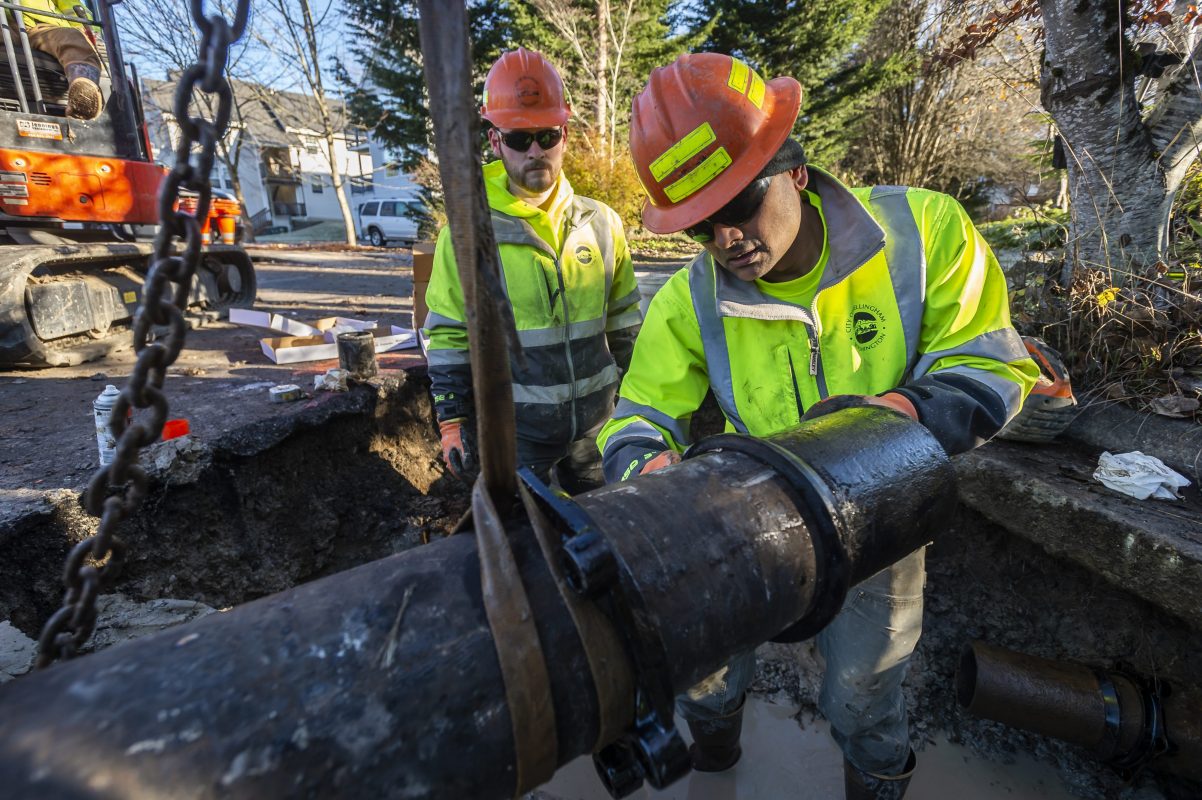Help our sewer system Keep wipes, fats, oils and grease out of the sewer system.
It can be easy to ‘flush it and forget it’, but what goes down the pipes is important for your home, for the city’s sewer collection system, and for our wastewater treatment at Post Point Resource Recovery Facility.
Flush it or trash it?
Toilet paper is made to break down in water. Most other products are, well…not. Even products that say ‘flushable’ do not actually break down in water, causing costly backups and clogs in the wastewater system. Our team maintains over 250 miles of collection pipes under the city with visual inspections, jet cleaning, and root removals to make sure used water makes it safely to the Post Point Resource Recovery Facility.
Keep our pipes flowing and our water clean by only flushing toilet paper down the toilet.

Only water down the drain
Whenever possible, please only send water down your kitchen sink drain. Food scraps can cause significant problems for both your home’s plumbing and our wastewater treatment plant, even after the scraps have gone through a garbage disposal. Sending these scraps down the drain also wastes a valuable resource that could be otherwise turned into nutrient-rich compost.
Food particles can build up in your sewer pipes, leading to costly clogs and potential back-ups into your home. Additionally, fats, oils, and grease can solidify and cling to pipes, causing overflow and back-up into the streets and disrupting the equipment at our wastewater treatment plant. The result can be costly home repairs and increased operational and maintenance costs that can lead to higher sewer bills for customers.
Fats, oils, and grease are naturally separated during cooking and baking, and they are used to cook or fry many foods. Common sources include:
- Cooking oil
- Meat fats
- Lard
- Shortening
- Butter
- Margarine
None of these items should be put down the drain!
Any excessive food waste going down your drains can overburden the wastewater treatment plant by increasing the workload for bacteria that break down organic matter. This can slow down the treatment process and strain the system. Finally, nutrients from food scraps, like nitrogen and phosphorus, can contribute to algae blooms in Bellingham Bay, harming aquatic ecosystems and water quality.
Please put all food scraps into your FoodPlus! compost bin if you have one. By being mindful of what you send down your drain, you can help protect your home, our environment, and our community’s infrastructure.

